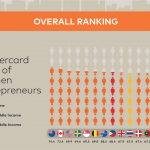In 2017, Macrebur took part in equity crowdfunding to raise more than £1.3 million on seed funding. In June 2016 the Macrebur was number one in Voom competition. The competition is organized and run by Virgin. Macrebur recycled plastics to create stronger road asphalt. This is just one example of startups that are working on developing a company that gains profits while solving social environmental problems. The main challenge for such entrepreneurs is to gain profit and at the same time solve environmental problems with little resources. It, therefore, forces them to prioritize over the other. But that view is quickly changing proving that one is in a position to meet both.
Technology revolutions have helped startups in many sectors. The startups are able to develop alternative products which are attractive and sustainable. Startups tend to make good use of technology compared to the incumbents. This allows them to reduce inefficiency in existing business models and products. A good example is Den startup that has developed wireless light switch. The switch is controlled using a remote and sensors. This simplifies the work of the user. It also helps to reduce the energy wasted worth £1.3 billion produced in the UK alone by unused appliances.
Currently, consumers are purchasing products based on their social and environmental impact. However, many startups are working out ways on how to change the behavior of the consumers. The same happens with the media. The media coverage of the topics on sustainable investments has gone up by 5%. The growth is since the financial crisis in 2018. This has developed a wider market for consumers whose purchasing power lies on brand’s sustainability. A good example is TOM business model where one donates a pair of shoes for every single pair sold.
Government partnerships have developed initiatives to solve sustainability problems. This came out from the release of the UN Brundtland Report in 1987 to the Sustainable Development Goals (SDGs) that should be effective in 2016. These are to be applied by the states for their policies and agendas. This helps in promoting startups and innovations. Startups work hand in hand with renowned corporate as their clients. The work is either through offering support or partnership. This has improved in the last few years. For instance, VCs investments have grown by 8% in the United Kingdom since 2011.
Impact investment might exceed $300 billion globally by 2020. More than half of the number will come from Europe at the growth of 17.3% annually. Investors should realize that there is a big potential for impact and returns. This is evident from companies like Nest initiated by Google. Climate Corporation initiated by Monsanto also proves that potential is there. More funds have been created by big banks, Foundations. Pension funds have also created more funds that went to impact investment. The high number of startups joining green sector is getting support from a high number of conscious consumers. Impact investors and government initiatives are also playing a huge supporting role. The upcoming entrepreneurs should focus mostly on social and environmental solutions. This is because investors are highly attracted to such startups.



